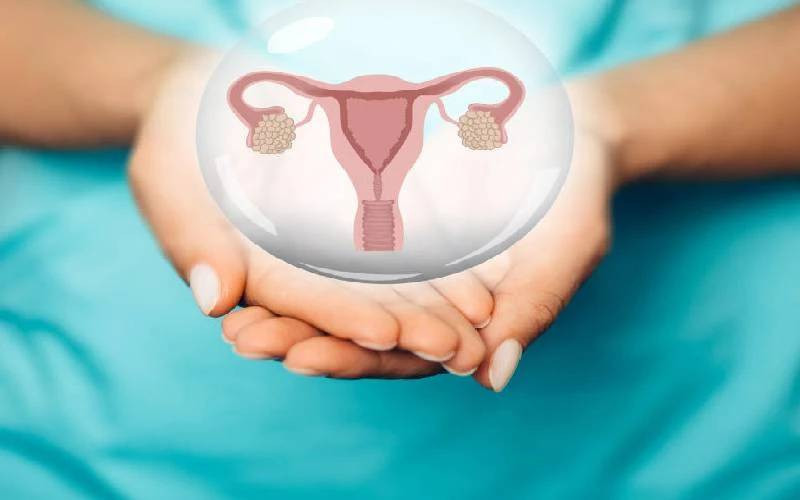
The Constitution, under 43(1)(a), grants every person has the right to the highest attainable standard of health, including access to healthcare services such as reproductive health care. However, this right may not be fully realized if the national government, through the Social Health Insurance Fund (SHIF), proceeds with its plan to introduce a temporary ID for pregnant teenagers and implement means testing to determine the amount they will pay for SHIF.
Previously, pregnant teenagers could access the same services using their parents’ cards, which meant they didn’t have to pay.
In 2022, the teenage pregnancy rate for women aged 15–19 in Kenya was 14.8 per cent excluding 13 and 14-year-olds, for whom data was either unavailable or not included. Access to ante-natal, delivery, and postnatal care for teenagers was fully funded by the government in public facilities.
However, since the transition from NHIF to SHIF, the government—despite Kenya being ranked fourth in Africa for the highest maternal mortality rates at 594 deaths per 100,000 live births—has only marginally increased its investment in reproductive health, from 16.4 billion shillings in FY 2023/24 to 16.9 billion shillings in FY 2024/25.
Family planning, a key component of Reproductive, Maternal, Newborn, Child and Adolescent Health (RMNCAH), has faced fluctuating budget allocations, with a billion shillings reinstated in the second supplementary budget after earlier reductions.
Additionally, Sh710 million were allocated to the Integrated Reproductive Health programme, largely supported by aid from the Youth VIVA project. It is crucial for the government to earmark these funds specifically to offset healthcare costs for pregnant teenagers. Designating teenage pregnancy as part of primary healthcare services and fully covering it under the PHC fund within Social Health Authority (SHA) would also ensure comprehensive support.
According to Robert Ingasira, SHA acting chief executive officer, teenage mothers must complete a 17-question assessment about their income, possessions, and lifestyle to determine their annual premium for healthcare services. While this initiative aims to address financial barriers and ensure equitable access, it raises questions about its alignment with the unique circumstances of teenage mothers.
Many of these young individuals, by virtue of their age and life stage, are unlikely to have significant income, wealth, or possessions, making such assessments potentially less relevant in practice. A large proportion of teenage mothers also come from underprivileged backgrounds where economic vulnerability is already well-documented. For the programme to be fully effective and equitable, it is important to ensure the assessment process considers the realities of teenage motherhood and minimize unnecessary burdens on this vulnerable group.
Globally, effective policies on adolescent reproductive health prioritize accessibility, affordability, and inclusivity. Countries like Rwanda and Ethiopia have implemented subsidized healthcare programs targeting vulnerable groups, including teenage mothers, ensuring they receive comprehensive care without financial strain. However, the long-term concern is that this appears to be the government’s initial
attempt to gauge Kenya’s response before reintroducing a parent-paid edu-afya program, which previously required parents to bear the cost of their children’s health access. This involves registering children under 18 to SHIF as individuals, thereby imposing a cost on their health access. This cost will undoubtedly be borne by parents, thereby increasing their financial burden and effectively displacing health care services from those most in need. Through indirect means, the government is evading its primary duty to implement Article 43(1)(a) of the constitution, which guarantees every Kenyan the right to health, particularly our children, who are our future.
Dr Norah Obudho is the East Africa Director at WomenLift Health and Peter Ngure is a SRHR expert and the vice-chairperson of Pathways Policy Institute.
 The Standard Group Plc is a multi-media organization with investments in media
platforms spanning newspaper print operations, television, radio broadcasting,
digital and online services. The Standard Group is recognized as a leading
multi-media house in Kenya with a key influence in matters of national and
international interest.
The Standard Group Plc is a multi-media organization with investments in media
platforms spanning newspaper print operations, television, radio broadcasting,
digital and online services. The Standard Group is recognized as a leading
multi-media house in Kenya with a key influence in matters of national and
international interest.
 The Standard Group Plc is a multi-media organization with investments in media
platforms spanning newspaper print operations, television, radio broadcasting,
digital and online services. The Standard Group is recognized as a leading
multi-media house in Kenya with a key influence in matters of national and
international interest.
The Standard Group Plc is a multi-media organization with investments in media
platforms spanning newspaper print operations, television, radio broadcasting,
digital and online services. The Standard Group is recognized as a leading
multi-media house in Kenya with a key influence in matters of national and
international interest.











